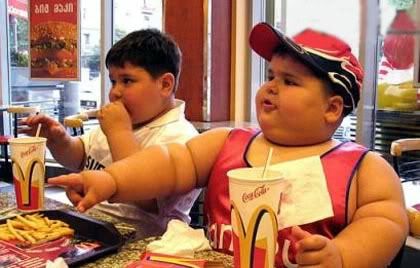Fat Bugs
Scientists have identified a key microbe in our guts that helps us glean more calories from food. The discovery backs the idea that the type of microbes in our gut help to determine how much weight we gain, and that seeding the intestine with particular bugs could help fight obesity.
Samuel Buck of Washington University in St Louis, Missouri, and his colleagues focused on one microbe called Methanobrevibacter smithii, which is effectively a waste-removal bug. It eats up the hydrogen and waste products released by other microbes, and converts them into the methane that escapes from our rear ends everyday. "It's a minor component of the gut flora with a major impact," Buck says tactfully.






